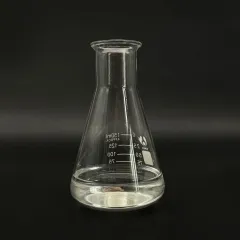Technical Parameters of Powdered Instant Sodium Silicate (CAS 1344-09-8)
(Technical Parameters of Powdered Instant Sodium Silicate (CAS 1344-09-8))
Note: We can likewise tailor sodium silicate powder with moduli of 2.45, 2.5, and 3.4 according to your requirements.
Our Series Of Salt Silicate Moduli
We provide powdered instant salt silicate with moduli ranging from 2.0 to 3.3. In addition, we can customize salt silicate powder with moduli of 2.45, 2.5, and 3.4 to satisfy your specific demands.
Introduction
With a growing international emphasis on environmental protection and sustainable development, salt silicate, alternatively known as water glass or soluble glass, has amassed substantial interest in numerous sectors owing to its diverse usages. This not natural substance works as an essential component in construction, papermaking, and cleaning agent manufacturing. Just recently, typical phosphorus-based cleaning agent additives such as sodium tripolyphosphate (STPP) have been slowly removed due to their negative impacts on marine ecological communities. In this context, the requirement for effective and ecologically safe choices has become immediate. Sodium silicate, with its unique characteristics, has stepped into the limelight as an encouraging option.
Market Opportunities
1. International Demand Fads
The international manufacturing of focused artificial cleaning agents has actually seen constant development, particularly with the increasing share of ultra-concentrated powders. It is estimated that at least 230,000 lots of sodium silicate were called for in 2000 alone to satisfy market need. Provided the current limited worldwide supply, there is a substantial void in between supply and demand, showing significant possibility for development. As consumers’ need for high-quality and environmentally friendly products increases, the marketplace for salt silicate is anticipated to broaden even more.
2. International Competitive Landscape
Contrasted to comparable items created worldwide, Chinese-manufactured sodium silicate often uses a more affordable cost and comparable and even superior high quality. For example, the FOB cost of salt silicate in the USA is roughly $51.15 per 100 extra pounds, while rates in Europe are even greater. This cost advantage placements Chinese producers highly in the international market. By continuously introducing and enhancing item top quality, Chinese manufacturers have the potential to record a bigger share of the international market.
Review of Salt Silicate
Salt silicate is a substance developed from silicon dioxide (SiO ₂) and salt oxide (Na ₂ O), commonly represented by the formula Na ₂ O · nSiO ₂, where n varies depending on the specific kind. It is characterized by excellent solubility, a high pH degree, and excellent cleansing residential properties, making it an excellent cleaning agent additive. Past its usage in cleaning agents, salt silicate is widely made use of in the building and construction sector, such as in waterproofing materials and sealers. In the paper sector, it boosts the stamina and smoothness of paper. Additionally, it finds applications in textile dyeing, oil extraction, and various other fields.
Production Refine
1. Resources Prep work: The initial action involves selecting ideal raw materials, consisting of silica sand or soluble glass, together with caustic soft drink.
2. Dissolution Stage: The raw products are combined and heated to a proper temperature to assist in dissolution, ensuring detailed blending of all components.
3. Formation Control: Specific problems are managed to promote the formation of wanted crystal frameworks in the solution. Temperature and stress parameters need to be exactly handled throughout this phase.
4. Filtration and Filtration: To make certain the pureness of the final salt silicate item, a plate and framework filter press is used to get rid of unwanted moisture and contaminations.
5. Drying and Forming: Spray drying out modern technology is utilized to decrease the dampness web content better, leading to a powder kind that is simple to shop and transportation.
Cost-Benefit Analysis
From an economic viewpoint, the production of salt silicate presents clear expense advantages. For a plant with a yearly ability of 5,000 tons, the expense breakdown is as follows:
1. Variable Costs: About $346.71 per ton, consisting of raw materials (silica sand/soluble glass and caustic soda), power intake (power and fuel), and labor expenses.
2. Fixed Prices: Around $141,400 every year, covering depreciation of fixed possessions, upkeep, administration charges, finance interest, and various other expenditures.
3. Overall Prices: The mixed total price is approximated at $385.71 per lot.
4. Sales Income: With an estimated market price of $642.86 per heap, the profit margin per ton would be approximately $257.15.
( sodium silicate)
5. Economic Conveniences: The task might produce a yearly earnings of around $3.21 million, contributing roughly $1.29 million in tax obligation income.
This cost-benefit analysis indicates that salt silicate not just uses substantial technological advantages but is also highly economically feasible. For making companies, purchasing the manufacturing and promotion of sodium silicate can produce substantial economic returns while enhancing their corporate social obligation image.
Conclusion
In recap, salt silicate, with its premium technical performance and reduced production prices, holds great possible as a substitute for traditional phosphorus-based additives. In light of progressively stringent environmental policies and the expanding consumer need for high-quality, green products, increasing the study, growth, and commercialization of sodium silicate will be a crucial vehicle driver in the transformation of the worldwide detergent sector. For capitalists, entering this field not only contributes to business social obligation but additionally assures appealing financial returns and societal benefits. With recurring technical advancements and a broadening market, the possible uses of sodium silicate are substantial and quality further examination and growth by market stakeholders and research study bodies.
TRUNNANO is a supplier of Sodium Silicate Materials with over 12 years of experience in nano-building energy conservation and nanotechnology development. It accepts payment via Credit Card, T/T, West Union and Paypal. Trunnano will ship the goods to customers overseas through FedEx, DHL, by air, or by sea. If you want to know more about 40 sodium silicate, please feel free to contact us and send an inquiry(sales5@nanotrun.com).
All articles and pictures are from the Internet. If there are any copyright issues, please contact us in time to delete.
Inquiry us












